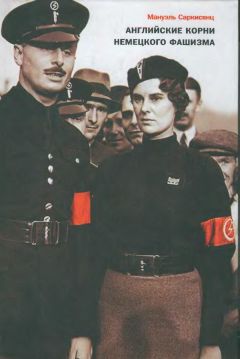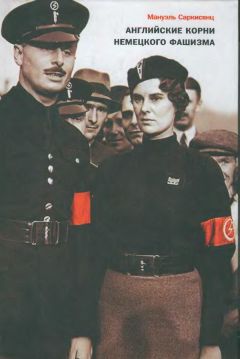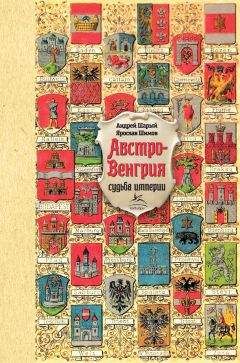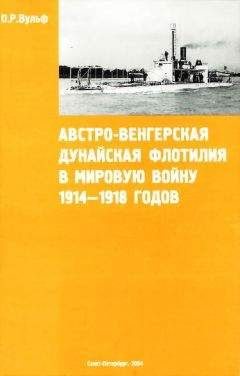977
Ibid., p. I24f, zitiert F. A. Steel, Law of the Treshold (1914), S. 293; Lewis D. Wurgaft, The Imperial imagination, Magic and Myth in Kipling's India (Middletown, Conn., USA, 1983), p. 19.
Parry, Delusion, p. 4, zitiert J. R. Ackerley, Hindu Holiday. An Indian journey (1952), p. 23f.
Francis Hutchins, The Illusion of Permanence, p. 154, 155.
Reginald Reynolds, The White Sahibs in India (1937), p. 275.
Greenberger, British image of India, p. 18.
Kincaid, British social life in India, p. xvii.
Parry, Delusions, p. 123.
Ibid., p. 4.
Псевд.: Флора Энни Уэбстер (1847—1929) — романистка.
Ibid., p. 121 with reference to Flora Annie Steel, On the Face of the Waters (London, 1897), p. 60.
Lewis Wurgaft, The imperial imagination. Magic and Myth in Kiplings India (Middletown, Conn., USA, 1983), p. 49.
Alfred Rosenberg, Mythus des zwanzigsten Jahrhunderts. Eine Wertung der seelisch-geistigen Gestaltenkampfe unserer Zeit (Munchen, 1941), S. 212, 214.
Ernst Klee & Willi Dressen, "Gott mit uns". Deutscher Vernichtungskrieg im Osten, S. 222.
Hitler, Monologe, S. 403, mit Hinweis des Herausgebers auf: Christa Schroeder, Er war mein Chef. Aus dem Nachlass der Sekretarin von Adolf Hitler. Herausgegeben von Anton Joachimsthaler (Munchen, 1985), S. 113.
Das Schwarze Korps vom 28. Juli 1941: "SS-Manner gegen Sowjet-Elite. Neue Wellen van Stalin-Gardisten": Das Schwarze Korps. Organ der Reichsfuhrung-SS. Facsimile-Querschnitt hrsg. von Helmut Heiber und Hildegard von Kotze (Bern/Munchen, o. J.), S. 175.
J. Goebbels, Tagebucher aus den Jahren 1942/43 (Zurich, 1948), S. 132; Wurgaft, The Imperial imagination, p. 164; cf. Marquess of Londonderry, Ourselver and Germany (Harmondsworth, 1938), p. 54.
Reginald Reynold, The White Sahibs in India, p. 328.
Helmut Bley, Kolonialherrschaft und Sozialstruktur in Deutsch-Sudwestafrika (Hamburg, 1968), S. 11.
Reginald Reynolds, The White Sahibs In India, p. 328.
Hitler, Monologe, S. 68: 25. September 1941.
Himmler, Geheimreden, S. 244.
Donald & Joanna Moore, The first 150 years of Singapore (Singapur, 1969), p. 593.
Ibid., p. 593.
Ibid., p. 594.
Ibid., p. 611.
R. Cecil, The Myth of the Master Race, p. 135.
Ibid., p. 135.
Himmlers Ansprache vom 4. Oktober 1943 bei Tagung von SS-Gruppenfuhrern: Ernst Klee & Willi Dressen, "Gott mit uns". Deutscher Vernichtungskrieg im Osten (Frankfurt, 1989), S. 223.
Ibid., S. 222.
Ibid., S. 9.
E. Charles Browne, The Coming of the Great Queen. A narrative of the acquisition of Burma (London, 1888), p. 284.
Kathryn Tidrick, Empire and English character (London, 1992), p. 140f, citing Lord Cranworth, Kenya Chronicles (London, 1939), p. 64; W. McGregor Ross, Kenya from Within (London, 1924), p. 114f; Errol Trzebinski, Kenya Pioneer (London, 1985), p. 125; Brief von Dr. G. Strohm (Gesandter, dann Konsul des Deutschen Reiches in Addis Abeba) vom 10. April 1940 — nach Horst Kuhn, Faschistische Kolonialideologie und der zweite Weltkrieg (Berlin Ost, 1962), S. 177-178.
Sudwestbote, Organ des Farmerbundes, VIII, Nr. 38: "Vorschlage zur Abhilfe der Arbeiternot (sic) in Deutsch-Sudwestafrika", angefuhrt bei Peter Schmitt-Egner, Kolonialismus und Faschismus... am deutschen Beispiel (Giessen, 1975), S. 127.
Klee & Dressen, "Gott mit uns". Deutscher Vernichtungskrieg im Osten, S. 34, zitiert Geheimbefehl von General Eugen Muller (zurbesonderen Verfugungbeim Oberbefehlshaber des Heeres) vom 25. Juli 1941. Vgl. Greenberger, The British image of India. A study in the literature of Imperialism 1880-1920 (Oxford, 1969), p. 58.
Hitler, Monologe, S. 62f: 17./18. September 1941.
Ibid., S. 48: 27. Juli 1941.
Werner Maser, Das Regime. Alltag in Deutschland 1933-1945 (Munchen, 1983), S. 259.
Hitler, Monologe, S. 374f: 29. August 1942.
Mangan, Games ethics and Imperialism, p. 29.
Mack, Public Schools, p. 181.
B. Gebot der "Zwolf Gebote fur das erhalten der Deutschen im Osten und die Behandlung der Russen": Der Prozess gegen die Hauptkriegsverbrecher vor dem Internationalen Militargerichtshof (Nurnberg, 1947), Band VIII, S. 28.
Himmler, Geheimreden, S. 156.
Schreiben von Dr. G. Strohm, Gesandten des Deutschen Reiches, dann Konsul in Aethiopien, vom 10. April 1940 an Dr. Weigelt, Direktor der Deutschen Bank, zitiert in Horst Kuhn, Faschistische Kolonialideologie, S. 178.
Basil Williams, Cecil Rhodes. Ubers. von Merilies Mauk (Berlin, 1939), S. 321; Marsch, The Conscience of the Victorian State, p. 173.
Alain Cairns (Editors), Prelude to Imperialism, p. 38; R. Baden-Powell, Scouting for Boys (1908), p. 44; V. Kiernan, Lords of Humankind, p. 55.
John Morley, Life of Cobden (London, 1903), p. 673.
Charles Wentworth, Greater Britain (1894), p. 496.
Sir Charles Wentworth Dilke & Spencer Wilkinson, Imperial Defense (Edition of 1897), p. 80.
Dilke, Greater Britain, p. 535.
V. Kiernan, Lords of Humankind, p. 54.
Greenberger, British image of India, p. 49, 51.
R, Symonds, The British and their sucessors (London, 1966), p. 125; Lord Hailey, An African survey (London, 1938), p. 258, angefuhrt in Robin Hallett, Africa since 1875. A modern history (Ann Arbor, USA, 1974), p. 308.
Wilfried Westphal, Geschichte der deutschen Kolonien (Munchen, 1984), S. 272.
Hitlers Zweites Buch = Institut fur Zeitgescluchte, Quellen und Darstellungen zur Zeitgeschichte, Band VII (1961), S. 165, 166.
Edmund Burke, Works, Vol. IX (London, 1899), p. 447f, 453, 455, 457: Speech of accusation Warren Hastings, former Governor General of Bengal, dated 16. February 1788.
Edmund Burke, "Reflections on the Revolution in France" (1790): Burke, Writing and Speeces, Vol. VIII (Oxford, 1989), p. 96.
Manfred Henningsen, Vom Nationalstaat zum Empire. Englisches politisches Denken im neunzehnten Jahrhundert (Munchen, 1970), S. 146f.
V. Kiernan, Lords of Humankind, p. 47, quotes: Joshu, The Rebelion of 1857 (Delhi, 1957), p. 371ff.
Фицмайер Джеймс Уильям (1813—1895).
John Morley, Life of Cobden, p. 825, 676, 679f.
Гобсон (Хобсон) Джон Аткинсон (1858—1940) — англ. экономист, либерал-антиимпериалист.
John A. Hobson, Der Imperialismus (Berlin, 1968), S. 142, 146f; Гобсон Джон. Империализм /пер. В. Беленко. Л.: Прибой. 1927. С. 128, 129.
Ibid., S. 133, 139, 141; Wurgaft, The imperial imagination, p. 21.
Joseph H. Krumbach (Hrsg.), From Ritter von Epp. Sein Leben fur Deutschland (Munchen, 1939), S. 314.
Wurgaft, The imperial imagination, p. 21.
Бёрк Ричард Саутвелл, шестой граф Мэйо (1822—1878) — вице-король и генерал-губернатор Индии.
James Fitzjames Stephen, Liberty, Equality, Fraternity (London, 1874: reprint Cambridge, 1967), p. 70.
Ibid., p. 32.
Ibid., p. 219.
Ibid., p. If.
Leslie Stephen, The Life of Sir James Fitzjames Stephen (London, 1895), p. 97; Lord Ronald Shay, The Life of Lord Curzon, Vol. I (London, 1998), p. 20, cited by R. Symonds, Oxford and Empire, p. 36; Flora Annie Steel, Potter's Thumb (London, 1894), p. 16, quoted in: Greenberger, The British image of India, p. 22.
James Fitzjames Stephen, Liberty, Equality, Fraternity, p. 14.
Ibid., p. 14.
Ibid., pp. 113f.
Greenberger, The British image of India, p. 31.
Lord Alfred Milner, Nation and Empire... a Collection of Speeches and Addresses
(London, 1913), p. 414.
Christine Bolt, Victorian attitudes to Race (London, 1971), p. 118.
R. MacDonald, Language of Empire, p. 227.
Ibid., p. 249; cf. Tim Jeal, Baden-Powell (New Haven, 2001), p. 249.
J. Heiton, The Castes of Edinburgh (Edinburgh, 1859), Chapter xii, cited in: V. Kiernan, Lords of Humankind, p. 43, 72, 47.
Basil Williams, Cecil Rhodes, p. 321.
Flora Annie Steel, Law of the Threshold (London?, 1924), p. 37, quoted in: Betina Parry Delusions, p. 114f.
Daily Mail of 12. November, 1917, quoted in Tania Rose, Aspects of political Censorship 1914-1918 (Hutt, England, 1995), p. 121.
Moreton Frewen's letter to St Loe Strachey of 25. July 1918, quoted in G. R. Searle, Corruption in British politics (Oxford, 1987), p. 333—335.
Tracy H. Koon, Believe, Obey, Fight. Political socialization of youth in Fascist Italy 1922— 1943 (Chapel Hill, USA, 1985), p. ix, 32, xvii, 9.
В 1925 г. эта книга (правда, в сильно сокращенном виде) была издана и в России под заглавием: Ал. Картхилль. Потерянная империя: Почему англичане потеряли Индию. Повесть англо-индийского администратора / Пер. Н. Губского и Е. Зубковой под ред. В. Яковлева. [М.]: изд-во М. и С. Сабашниковых. 1925. Далее некоторые цитаты приводятся по этому изданию.
Herbert G. Wells, "The New Republic": Works, Vol. IV (London, 1924), p. 258; Parry, Delusions, p. 26f.
Karl Haushofer, in: Al Carthill, Verlorene Herrschaft. Wie England Jndien aufgab (Berlin, 1924), S. 9; Ал. Картхилль. Потерянная империя: Почему англичане потеряли Индию. Повесть англо-индийского администратора / Пер. Н. Губского и Е. Зубковой под ред. В. Яковлева. [М.]: изд-во М. и С. Сабашниковых. 1925. С. 114.
Ibid., S. 206f.
Ibid., S. 12.
Ibid., S. 10.
Hannah Arendt, Elemente und Ursprunge totaler Herrschaft (Frankfurt, 1955), S. 349.
Carthill, Verlorene Herrschaft, S. 63; Ал. Картхилль. Потерянная империя: Почему англичане потеряли Индию. Повесть англо-индийского администратора. С. 70.
Ibid., S. 141.
Ibid., S. 142.
Ibid., S. 143.
Hermann Schreiber. Land im Osten. erheissung und Verhangnis der Deutschen (Dusseldorf, 1961), S. 342f.
Rex Stevenson, Cultuvators and administrators. British educational policy towards the Malays 1875-1906 (London, 1975), p. 76.
Ibid., p. 58, 75, quotes The Times of Malaya (Ipoh, Perak) of 9. February 1905, p. 5.





